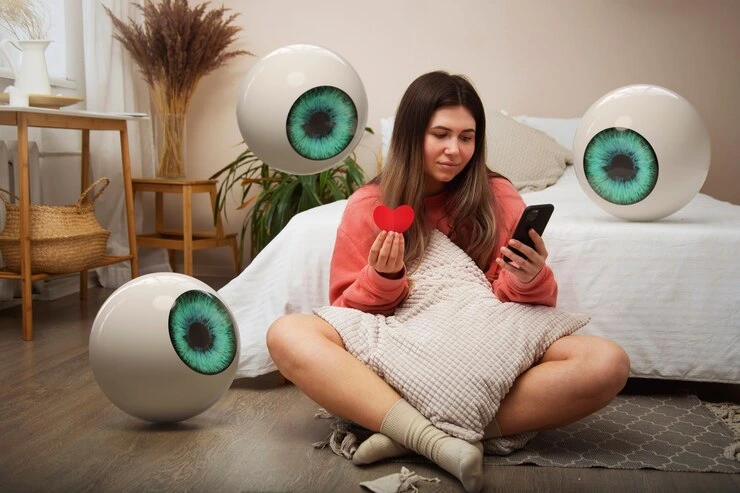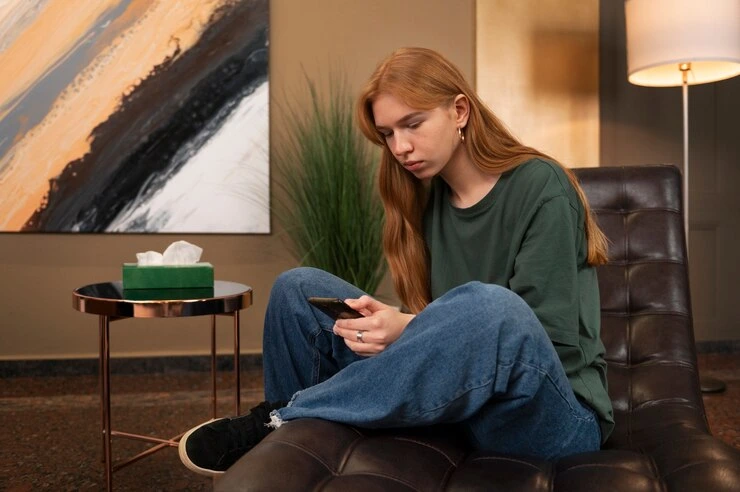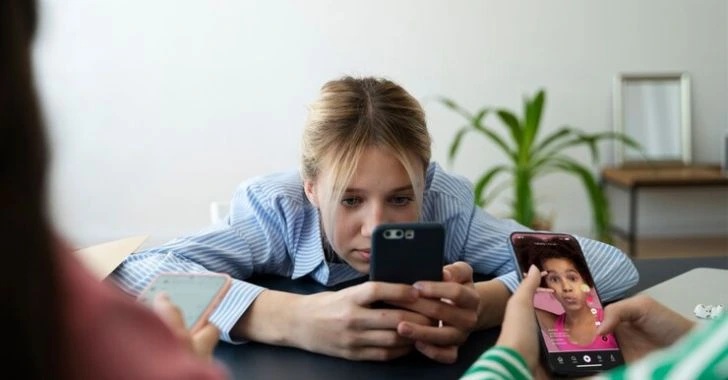In today’s digital age, social media has become a fundamental part of daily life. Platforms like Facebook, Instagram, Twitter, and TikTok connect people across the globe, allowing for the exchange of ideas, experiences, and information. While these platforms offer numerous benefits, such as staying connected with friends and family, they also have a profound impact on mental health. In this article, we will explore both the positive and negative effects of social media on mental health, shedding light on how its use can shape psychological well-being.
Positive Effects of Social Media on Mental Health

- Connection and Support
One of the primary benefits of social media is the ability to stay connected with others. For many individuals, particularly those who live far from family or friends, social media can offer a sense of closeness. Through online communities, users can find social support, share their experiences, and seek advice. Mental health professionals and advocates often use social platforms to spread awareness and provide resources for those struggling with various mental health issues.
- Access to Mental Health Resources
Social media has given rise to an array of mental health resources, from self-help blogs to online counseling services. Many mental health organizations use platforms like Twitter and Instagram to share valuable information, tips for managing stress, and even crisis helplines. This access to resources helps individuals who may not have other means to seek help, whether due to location, financial constraints, or stigma.
- Empowerment and Advocacy
Social media has also become a powerful tool for advocacy and empowerment. Movements such as #MeToo, Black Lives Matter, and campaigns for mental health awareness have gained significant traction through social platforms. These movements help individuals who may feel isolated or marginalized find a sense of solidarity and community. The visibility of mental health challenges, as well as the increased conversations around topics such as depression, anxiety, and suicide, has led to greater societal understanding and acceptance.
Negative Effects of Social Media on Mental Health

- Comparison and Low Self-Esteem
While social media can help foster connection, it can also contribute to negative self-perception. Platforms like Instagram and Facebook often portray idealized versions of people’s lives, showing only the highlights and omitting the struggles. This can create a distorted view of reality, leading to comparison and feelings of inadequacy. Individuals may find themselves comparing their lives, achievements, or appearances to others, which can lower self-esteem and increase anxiety.
Research has shown that prolonged exposure to these curated images and lifestyles can negatively affect mental health, especially among young people. Teenagers, in particular, are more susceptible to the pressures of maintaining a perfect image online, which can contribute to anxiety, depression, and other mental health issues.
- Cyberbullying and Harassment
Cyberbullying is another harmful side effect of social media use. With the anonymity provided by online platforms, individuals may engage in bullying behaviors that they would not do in person. This form of bullying can have devastating effects on mental health, leading to depression, anxiety, and in extreme cases, suicidal thoughts. Victims of cyberbullying often feel trapped, unable to escape the harassment as it follows them into their homes through their devices.
Furthermore, social media can also expose individuals to harmful content, including hate speech and discriminatory language. Constant exposure to negativity and hostility can affect emotional well-being and exacerbate mental health struggles.
- Sleep Disruption and Addiction
The addictive nature of social media is a growing concern. Platforms are designed to keep users engaged with endless scrolling, notifications, and algorithms that prioritize content designed to grab attention. This can result in excessive use, particularly before bedtime. The blue light emitted by screens interferes with the production of melatonin, a hormone that regulates sleep. As a result, individuals who spend too much time on their phones or computers before bed may experience disrupted sleep patterns.
Lack of sleep is closely linked to mental health problems, such as increased stress, anxiety, and depression. The cycle of social media use and poor sleep can create a negative feedback loop, making it harder to break free from unhealthy habits.
- Fear of Missing Out (FOMO)
FOMO, or the fear of missing out, is another psychological phenomenon that has emerged due to social media. Seeing others engage in social events, vacations, or activities that one is not a part of can lead to feelings of exclusion and loneliness. This sense of missing out can exacerbate feelings of anxiety and depression, particularly in individuals who already struggle with self-esteem or social anxiety.
The constant stream of updates on social media can make users feel like they are not living up to the experiences of others, leading to dissatisfaction with their own lives. Over time, this can have a detrimental effect on mental health.
Social Media and Mental Health: Finding Balance
While social media has its drawbacks, it is not inherently harmful to mental health. The key is finding a healthy balance in how we use these platforms. Here are some strategies to reduce the negative impact of social media on mental well-being:
- Set Boundaries and Time Limits
One of the simplest ways to protect mental health is to set boundaries around social media use. Limiting screen time, particularly before bed, can help reduce the negative effects of blue light on sleep and prevent overuse. Apps that track screen time can help users become more aware of their habits and encourage them to take breaks.
- Curate Your Feed
Following accounts that promote positivity, mental health awareness, and authentic content can help combat the feelings of inadequacy that often arise from social media use. Curating a feed that reflects personal interests and values can improve mental health by fostering a sense of connection and belonging.
- Seek Professional Help
If social media use is significantly affecting mental health, it may be time to seek professional help. Mental health professionals can provide guidance on managing the negative impact of social media and help individuals develop healthier habits. Online therapy services, many of which are accessible through social media platforms, have made it easier than ever to seek support.
- Be Mindful of Content Consumption
It is essential to be mindful of the content consumed on social media. Following accounts that promote body positivity, mental health awareness, and self-care can provide a healthier and more supportive environment online. It is also important to avoid engaging with toxic content or online harassment, which can have long-lasting effects on emotional well-being.
Conclusion
Social media undeniably plays a significant role in our lives, offering both positive and negative impacts on mental health. While it can provide connection, support, and access to resources, it can also contribute to issues like comparison, cyberbullying, and anxiety. By practicing mindful use, setting boundaries, and curating a positive digital environment, individuals can harness the benefits of social media while protecting their mental health.
As we continue to navigate the complexities of social media, it is essential to maintain a balance that prioritizes mental well-being. By staying informed and mindful, we can ensure that social media remains a tool for connection rather than a source of harm.



